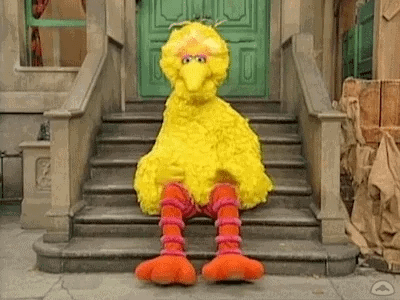What CPB means to Hispanic Americans
Cutting the Corporation for Public Broadcasting, NPR and PBS will be our loss
I’ve struck up more than a few conversations in lavanderías. They’re common in San Francisco, where many older buildings lack washing machines and we’ve all got time on our hands. And, whenever I mention I work in public media, people’s faces light up. For some, public radio or television was how they learned English, because our slower-paced cadence made the language easier to follow. Others recall how their kids watched PBS shows on tablets while they folded clothes here not so many years ago.
It’s a regular reminder: while we often describe public media in sweeping terms like democracy, facts and community, its impact is deeply personal. For many Latinos, including me, public media has been transformative, a quiet but constant presence shaping our lives.
So when I see new attacks on PBS and NPR—some warranted, given their blind spots, others purely political—I think less about the headlines and more about those conversations over the din of dryers. Those are the people who will feel the cuts the most.
I take particular exception to the targeting of the Corporation for Public Broadcasting. In my previous work, I saw firsthand how CPB has long played a pivotal role in supporting initiatives that connect with all Americans. CPB’s funding programs, support of station projects and content development across local organizations, PBS, NPR and affiliated organizations has made the nation stronger. Moreover, CPB’s investments have significantly enriched public media’s ability to reflect the diversity and experiences of Latino communities nationwide. I feel we should discuss this more.
How much does CPB do for Hispanic communities? More than most people realize.
Take Latino Public Broadcasting, for example. LPB is a key CPB partner that’s been instrumental in advancing knowledge about the Latino experience in communities nationwide. In 2022, CPB provided LPB with funding to support the creation and national distribution of new programming. Through its Public Media Content Fund, LPB backs independent filmmakers producing powerful documentaries and series about Latino arts, politics and identity.
In 2025, LPB announced a slate of new productions—long-form documentaries and shorts—that explore the depth and diversity of Latinx experiences across the country. These aren’t just stories; they’re reflections of community and culture, offered on platforms like PBS and WORLD Channel, where more Americans can engage with them.
CPB has also enabled PBS to consistently highlight Latino history and culture. Programs like Latino Americans offer a sweeping but accessible look at over 500 years of Latino life in the U.S.—from contributions to hardships. Each year during Hispanic Heritage Month, PBS features specials like Great Performances: Roots of Latin Jazz, showcasing the cultural influence of Latin music across generations. Such programs not only educate audiences, but also foster a greater understanding and appreciation of the many cultures that comprise the American experience.
On the NPR side, CPB’s funding helped launch Code Switch in 2016, a podcast that dives into the complexities of culture, including nuanced reporting on Latino issues. Other programming offerings like Alt.Latino give deep dives into Latin music, art and history, helping NPR better represent and serve audiences. NPR’s ongoing coverage of immigration, education and the Latine electorate further illustrates its commitment to reflecting this critical segment of the country.
And perhaps most critically, CPB’s impact can be seen at the local station level, where funding supports grassroots efforts to reach Latino audiences. In Utah, KUER and PBS Utah launched KUUB, a new bilingual station (OIGO profile) aimed at serving the region’s growing Spanish-speaking population. In Texas, KETR teamed up with Radio Bilingüe to deliver Spanish-language public radio via its HD3 channel. These local investments ensure public media remains relevant and responsive where people actually live.
This last newsletter of the spring could be a novela if I listed everything CPB has done to connect America and help the country understand its changing stories. However, neither of us probably has that much time.
It will be a long three weeks before summer OIGO returns. At the moment, I’ll say CPB and the difference it makes deserves all our attention.
Much public media messaging is around the $1.60 public broadcasting costs every American. Yet this isn’t a numbers debate to critics so much as a moral one. It needs to be said out loud that public media’s future shouldn’t be decided in the abstract, by pundits or appointees far removed from its everyday impact. It should be judged by the conversations it sparks in laundromats, the comfort it brings to people learning, the cultural appreciation it fosters through music and storytelling, how it helps kids, and the news and information that keeps communities together.
The Corporation for Public Broadcasting isn’t just a budget line. It’s a bridge. And for millions of Hispanic Americans across the country, it’s a lifeline. If we lose that, we lose something irreplaceable. 🟢
Cafecito: stories to discuss ☕
Share your organization’s DEI changes. The New York Times is looking to talk to people whose workplaces have altered their diversity, equity and inclusion policies and efforts. 🛑
Felicidades. K Onda KQED, Blanca Torres’ newsletter on Bay Area Latine life, turns one year old. 🚀
Hispanic economic effects. Latinx buying power, and especially its ascendancy in states that rely on such economic drivers, is being impacted by political headways, according to researchers. 💸
New data on perceptions of discrimination. Pew Research Center just offered new polling on who Americans feel faces the most discrimination, with undocumented immigrants landing atop the list. In addition, 72 percent of Americans say Latino/as face discrimination. 📈
El Salvador and journalists. The Washington Post investigates moves by President Nayib Bukele against the country’s news reporters. Many organizations are leaving El Salvador entirely. 😟
El radar: try this 📡
Ask about data around Latine doctors in your region. Arizona PBS spotlights figures around medical professionals in the state, as well as reasons why viewers should care. 🚑 The springboard is a new documentary on the subject.
Keep highlighting local reactions to Trump moves. How is your community feeling about the latest tweets directed at them? 🚨 WLRN has a report on the self-deportation posturing and what community leaders are thinking. WBEZ offers a perspective on Chicago arts organizations facing issues.
Note how your community to reacting to DEI rollbacks. Many outlets are covering the end of DEI programs and how residents feel. 👀 Such is the case at Spokane Public Radio, where DEI cuts are the focus related to local cultural celebrations.
Explore the number of Latinx radio pros in your state’s Hall of Fame. The Public’s Radio talks with Tony Mendez, the first Latine member of the state’s radio hall of fame. 🏆 Every state has a hall, and your organization might ask about local Hispanic broadcasters who’ve been inducted.
Examine Brazilian identity locally. The Conversation offers a thoughtful exposition on the lives of Brazilians and how Latino identity does (or does not) include them. ⬆️ Such provocative conversations could lead to more connection in your region.
The next OIGO arrives June 13. I’ll be in Seattle that week. If you’re in the area, please reach out.
OIGO is free, but you’re welcome to buy me a coffee to support the newsletter, or add a Substack paid tier. Gracias a todo for your support all this time.







"It needs to be said out loud that public media’s future shouldn’t be decided in the abstract, by pundits or appointees far removed from its everyday impact. It should be judged by the conversations it sparks in laundromats, the comfort it brings to people learning, the cultural appreciation it fosters through music and storytelling, how it helps kids, and the news and information that keeps communities together."
Hear hear!